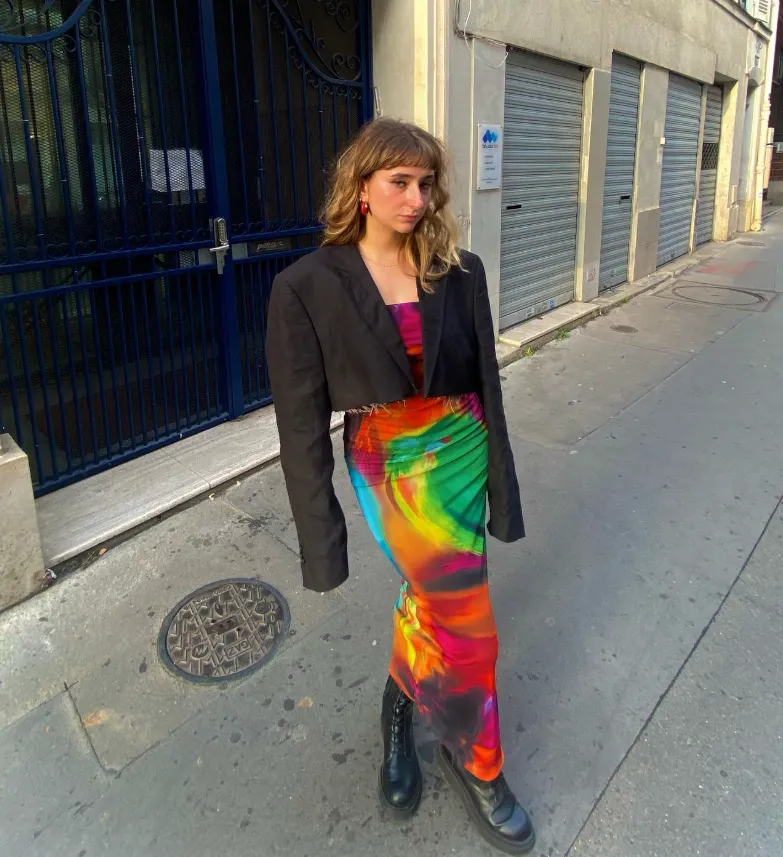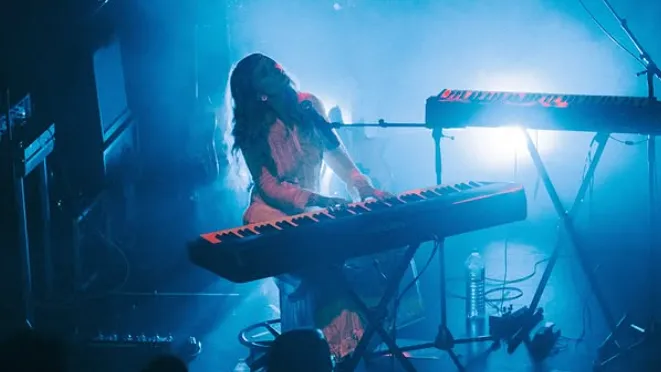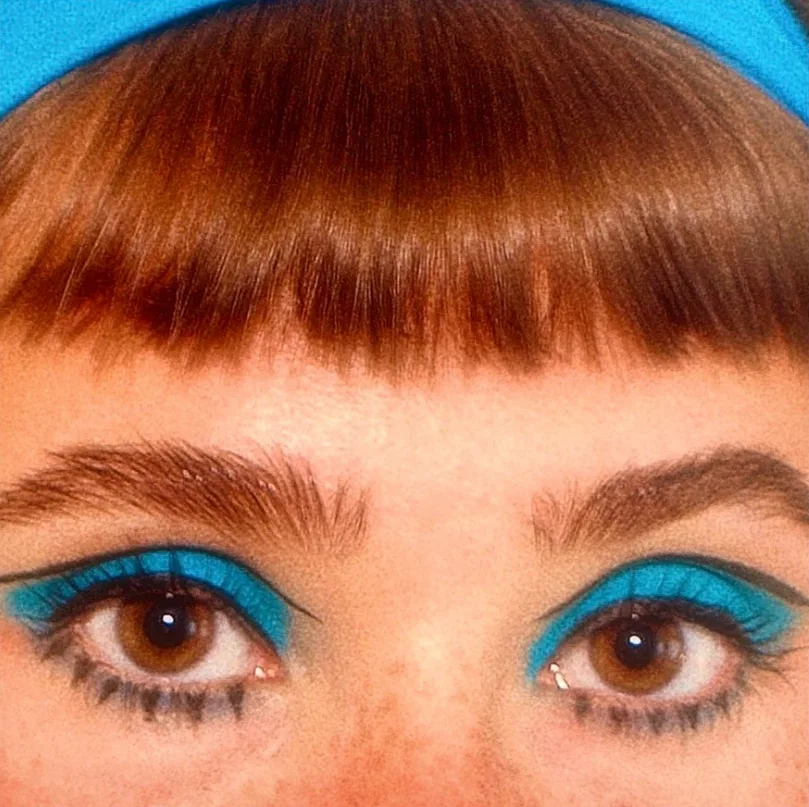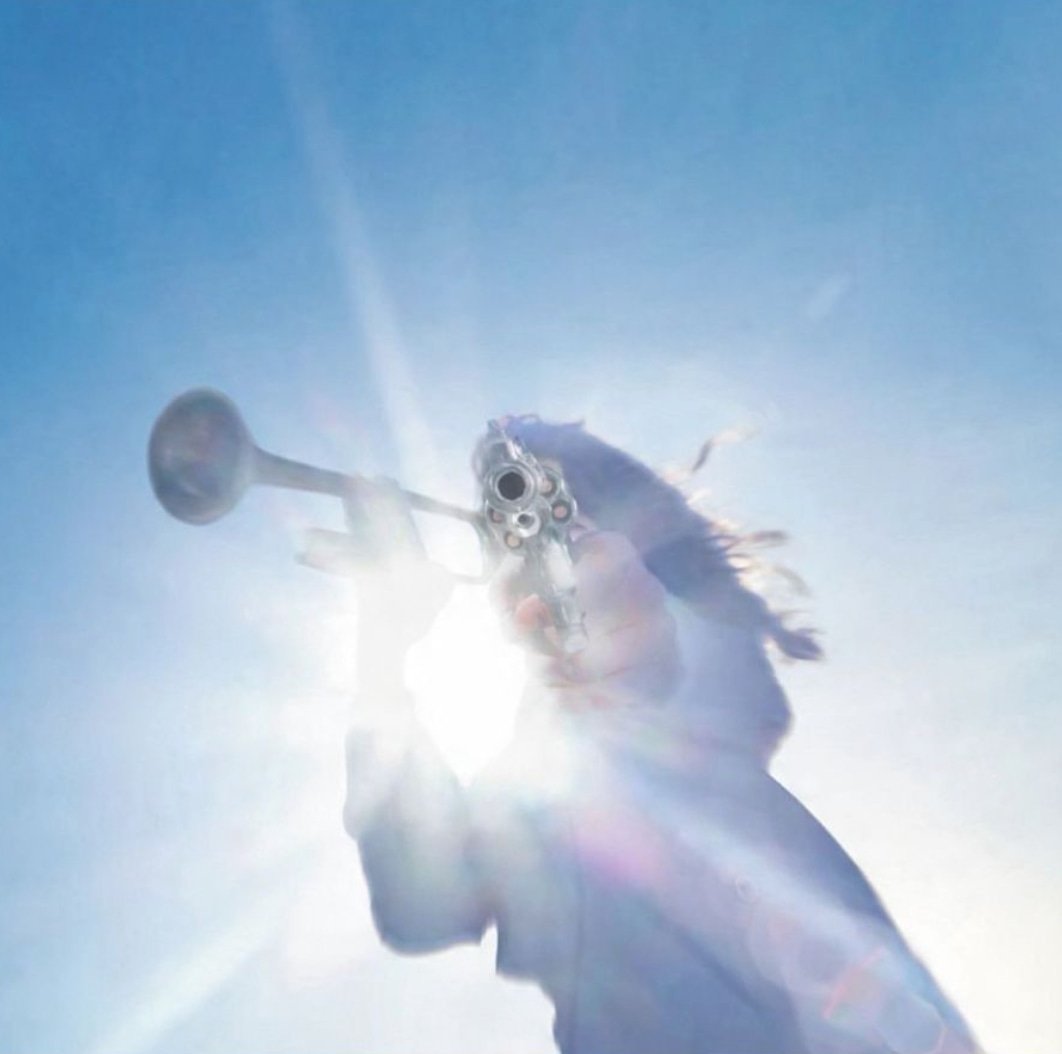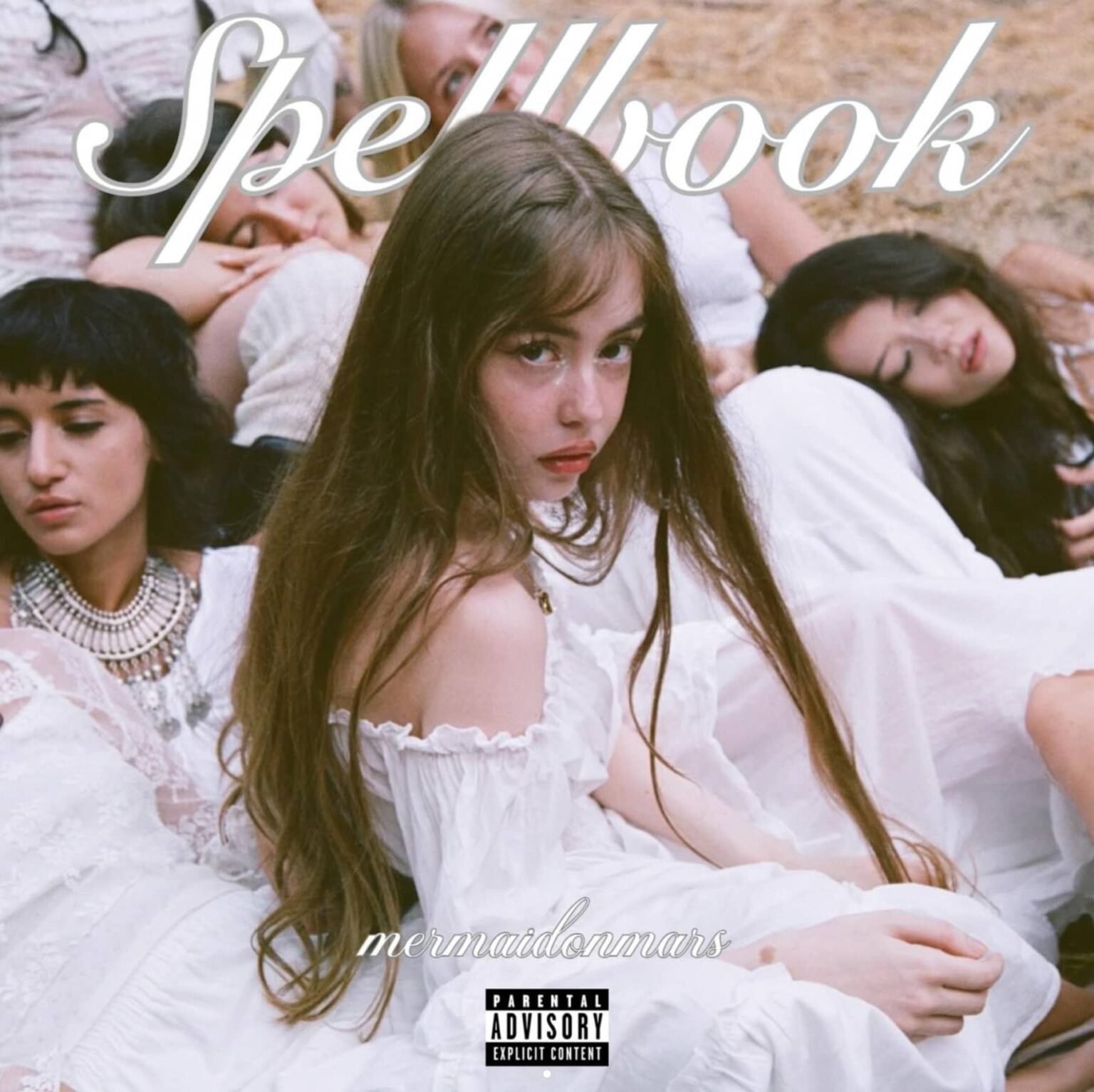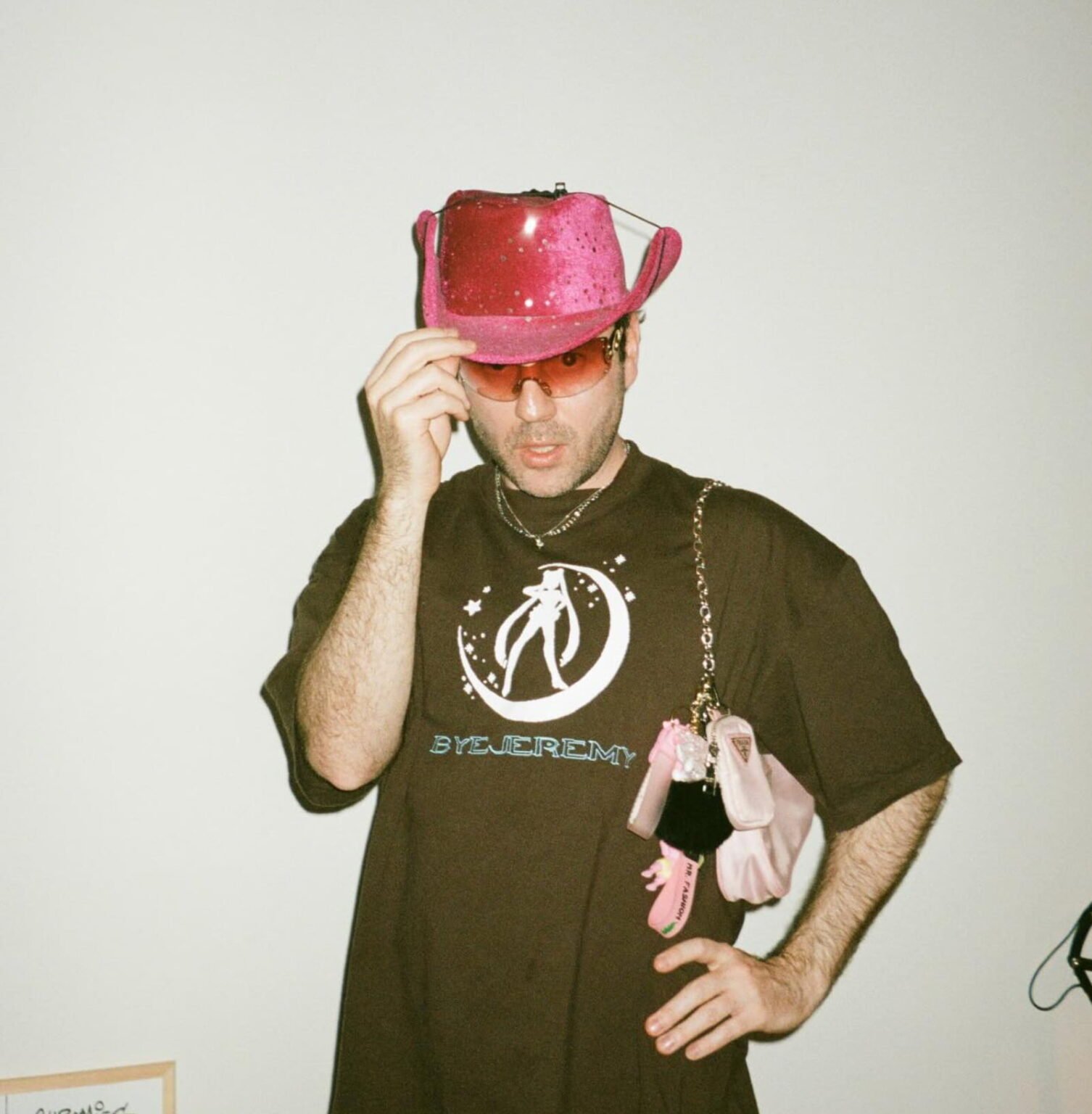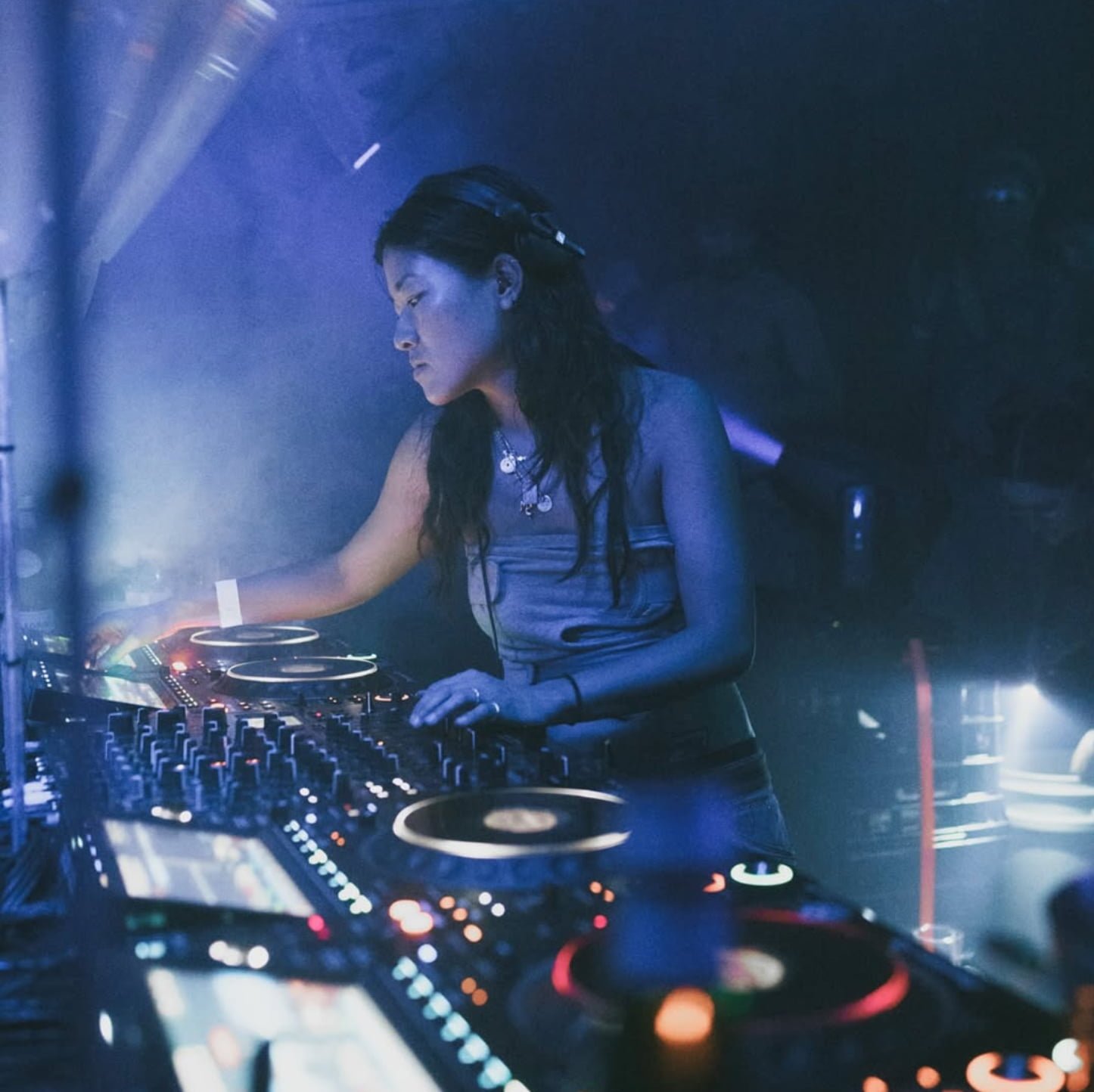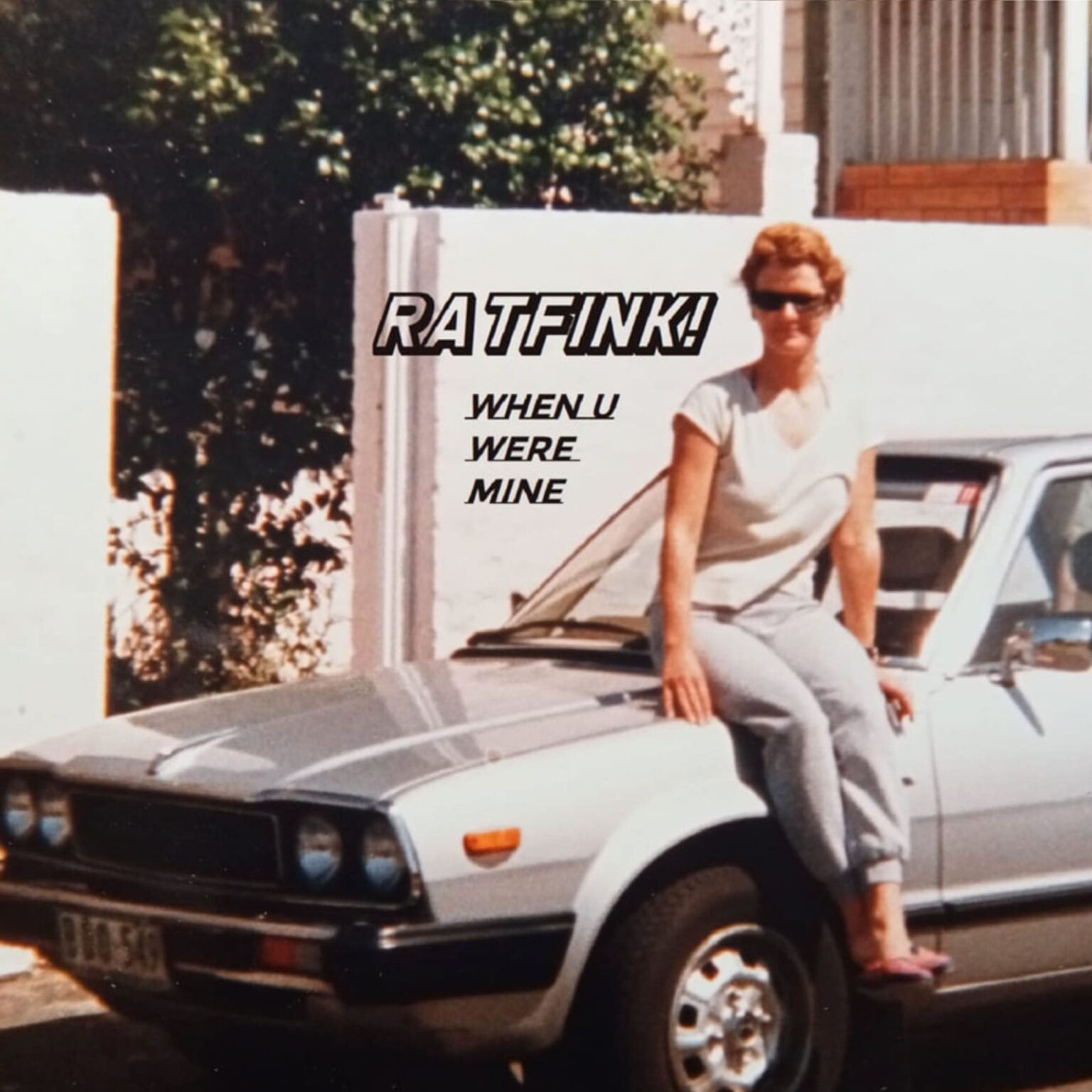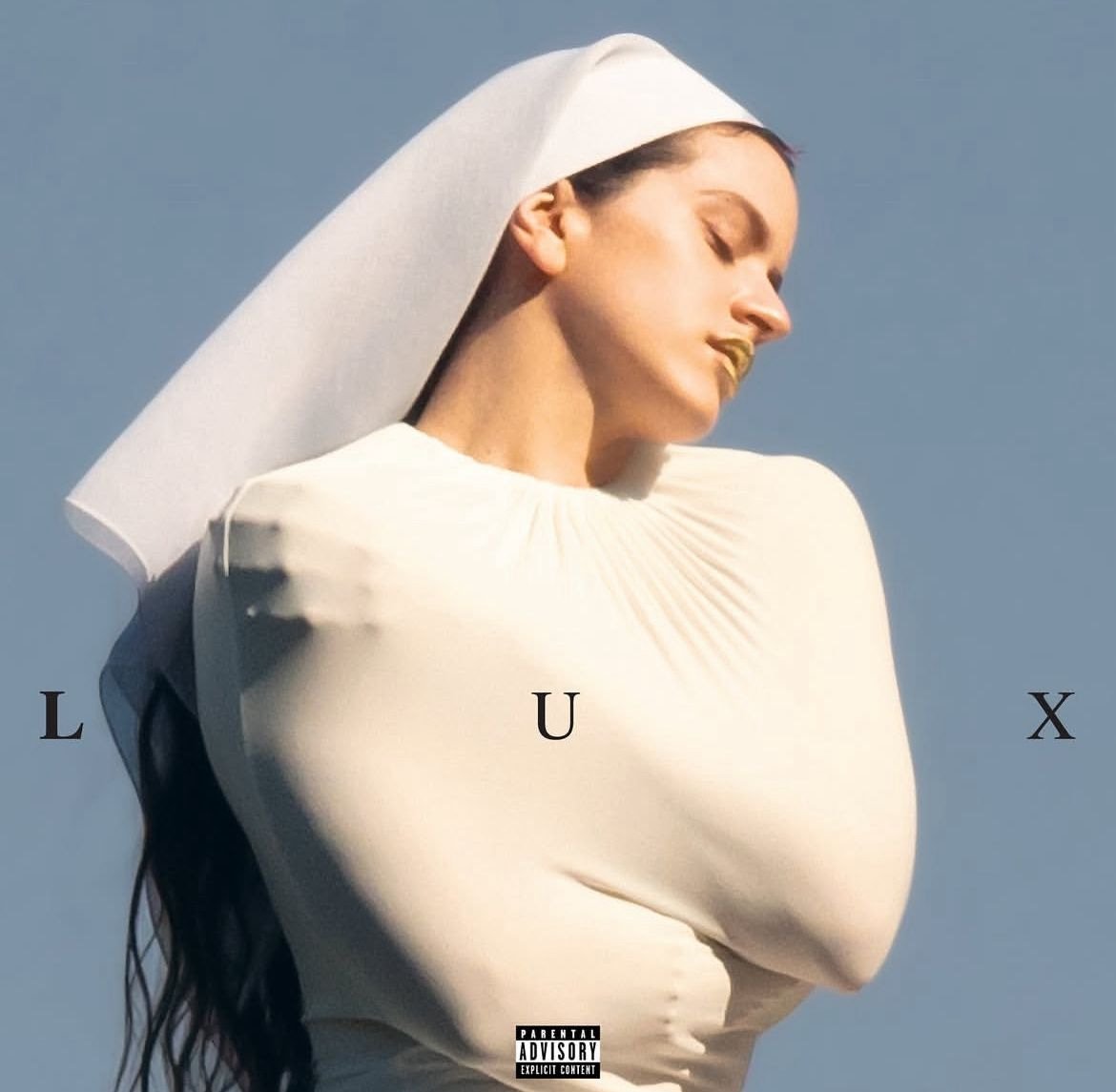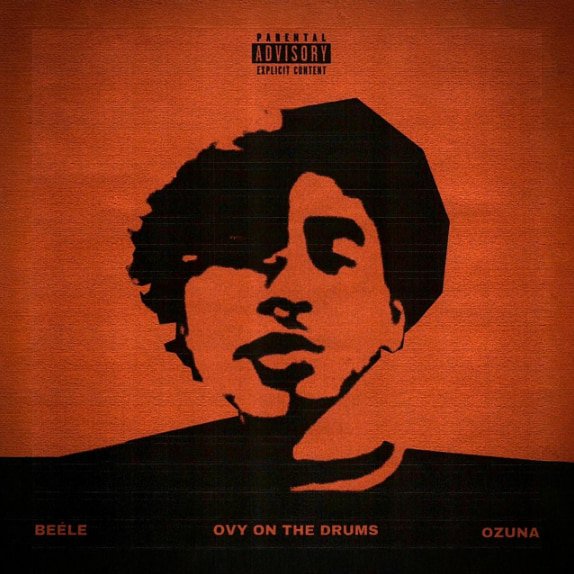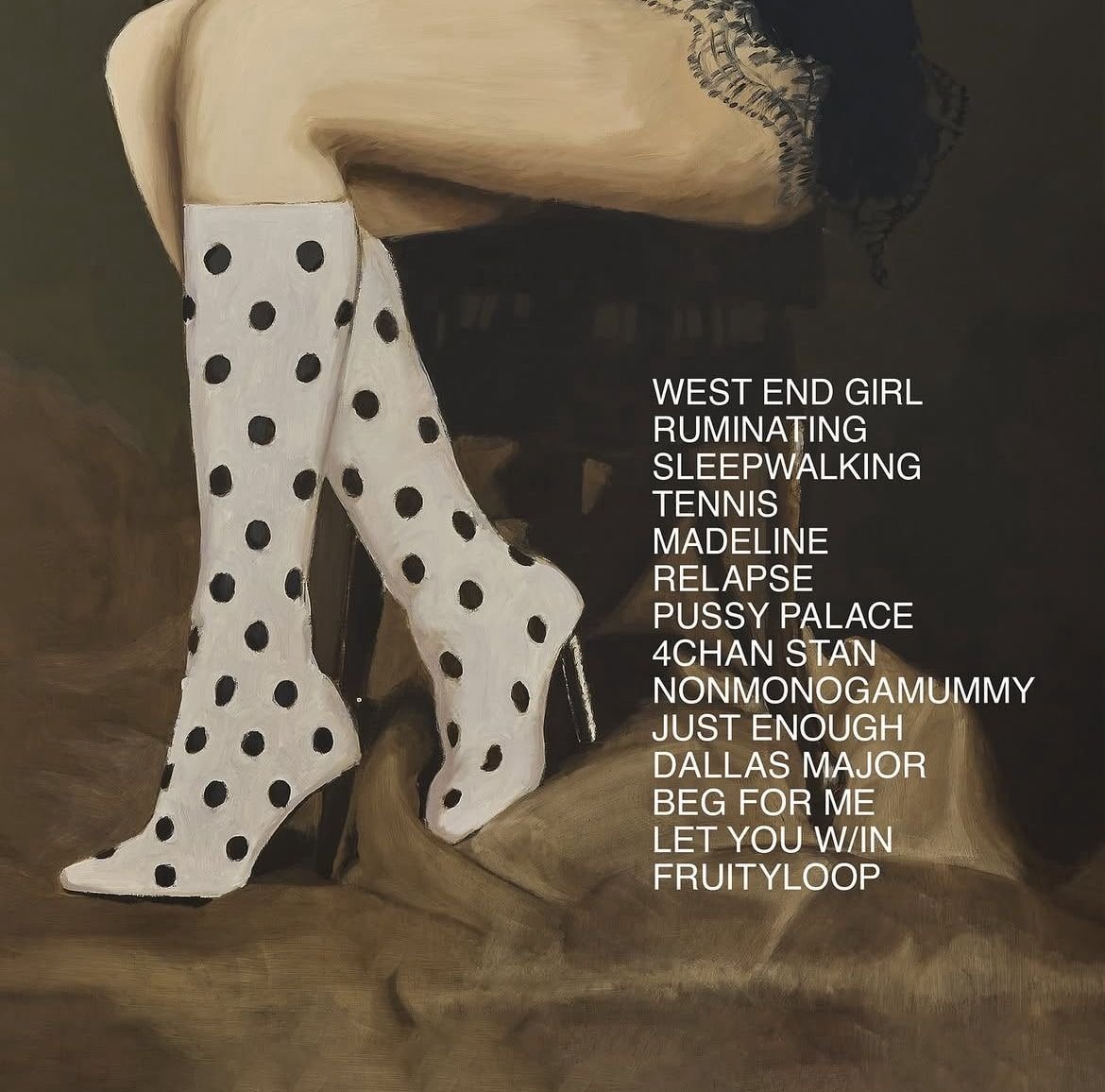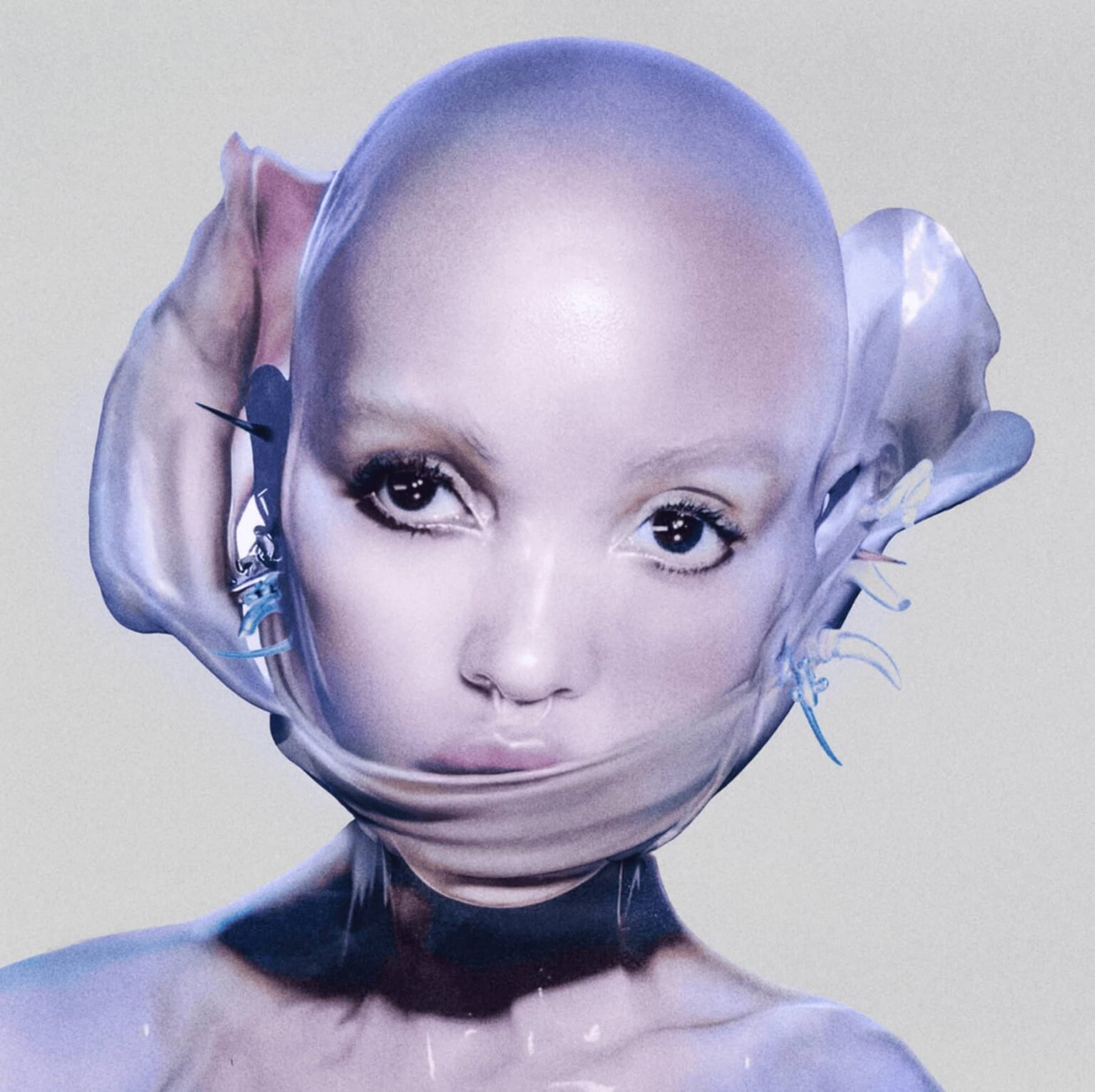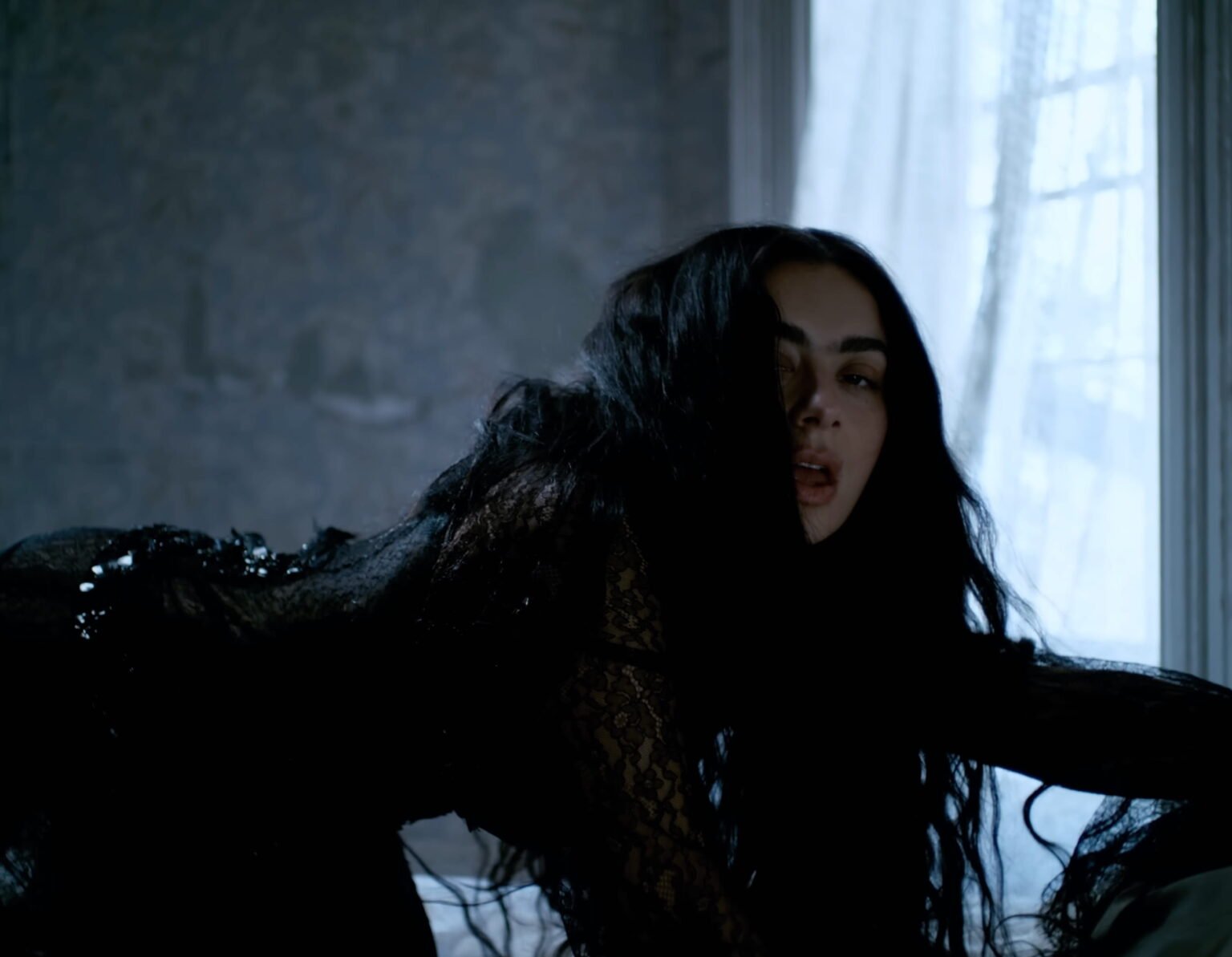Some artists create from technique, others from ego. Nina Battisti creates because she has no choice. Born in Corsica, based in Paris, and raised on a diet of classical piano and heartbreak, she doesn’t sing to perform — she sings to survive. Her voice doesn’t try to impress. It tells you what you didn’t know you were feeling.
Trained in conservatory discipline — sheet music, Schumann, the works — Nina’s heart broke open when she discovered Juliette Armanet. Then, after a crushing breakup, she found her voice. “Manque d’amour gave me the push I needed,” she says. The result? An identity stitched in sound and silence.
In 2025, she released her debut EP, Le Cabaret des Pleurs — a bold, bruised, and oddly joyful collection of French pop meets lo-fi electro.
Each track feels like a love letter from the bathroom floor: romantic, insecure, poetic and a little absurd. The lyrics touch on body image, artistic comparison, self-worth and survival — not with despair, but with sly, self-aware humor. “I accept failure. I accept slowness. What matters is listening to myself,” she says. And she means it.
Live, Nina transforms small stages into red altars. At her Paris debut in Les Trois Baudets, she filled the room with heart-shaped balloons, intimate lighting, and her signature piano-vulnerability. Styled by her friend and fellow artist Inna, she wore a deep red outfit to match the EP’s mood: theatrical, honest, a little broken and very real. “Red made sense. It’s the color of my songs, my wounds, my whole vibe.”
She chooses collaborators by instinct. Whether opening acts like Déborah Leclercq or French Toast, or her creative team, Nina trusts chemistry over status. “I don’t feel like I’m someone important enough to ‘choose’ support acts. It’s a shared moment. A co-plateau.”
Her writing process? Chaotic. She never pens lyrics in advance. She sits at the piano, loops a few chords, and lets the emotions write themselves. Sometimes, a song’s born in 15 minutes. Other times, nothing happens for weeks. And that’s fine. The discipline of her classical training helps — she still studies Schubert and Schumann — but what drives her is intuition, not perfection.
“This EP is me. It’s my 2024, my start of 2025. It’s everything I’ve been through. If someone listens and feels less alone — that’s everything.”
Nina Battisti sings like someone who needs to, who doesn’t care for trends or polish. Her charm lies not in perfection, but in presence. In being the friend who jokes while crying. The performer who turns stage fright into stand-up. The songwriter who makes heartache wearable — and cool.
Forget the gloss. Nina is what happens when pain gets a piano and dares to be loud about it.
